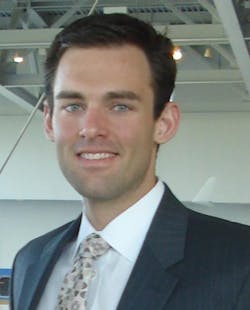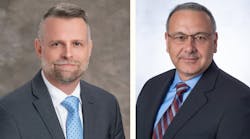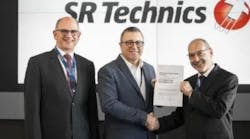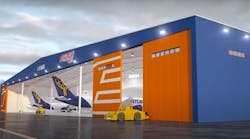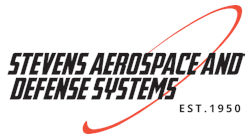To keep things running smoothly on the shop floor, it’s essential to get out of the shop. Attending industry events and participating in face-to-face advocacy efforts allow maintenance providers to remind policymakers that no one can fly without us.
Each year Aeronautical Repair Station Association (ARSA) members introduce themselves to legislators and regulators. This March, representatives of MRO businesses spent three days in this nation’s capital teaching, learning, and working for a better future.
During Legislative Day, attendees crisscrossed Capitol Hill showing lawmakers how vital aviation maintenance is back home. Each participant was armed with ARSA’s new study, the 2015 Global Fleet and MRO Economic Assessment, highlighting the national and global impact of the aviation maintenance industry. The study — prepared by CAVOK — demonstrated that the aviation maintenance industry employs nearly 300,000 Americans, generates $43 billion in economic activity, and contributes more than $5 billion in federal corporate and individual income taxes. Numbers like these speak loudly on Capitol Hill.
After hitting the Hill, ARSA members engaged regulators during Regulatory Day. The day was jam-packed with presentations, speakers, and panels covering a broad range of issues. Representatives from the FAA and EASA addressed global certification and regulatory matters that underscored the value of bilateral cooperation. Technological innovation and the FAA’s role in collecting safety data also took center stage when the agency introduced potential upgrades to the service difficulty reporting program and solicited feedback from attendees.
During break-out sessions ARSA facilitated conversations between attendees and panelists on a host of issues ranging from negotiating access to ICAs and workforce development to data reporting and best practices for interacting with the government. These smaller sessions provided a unique opportunity for industry stakeholders to share their collective knowledge and bring to light problems — and potential solutions — that affect individual businesses and the industry as a whole.
The symposium drew to a close with an upbeat and informative address from the FAA Administrator, the Honorable Michael P. Huerta. He made it clear he understood the value of MRO and the necessity for meaningful, but not heavy-handed, regulatory oversight. He informed the audience that he is committed to delivering the same message to the FAA workforce through visits to local offices — a novel approach for an FAA Administrator, to focus on compliance over enforcement.
Association events are about more than just members, they are a service to the entire industry. Repair stations (ARSA members or not) must continue their good work back home, and to do that, industry stakeholders must engage each other and the government to ensure we have safe skies and a successful aviation maintenance industry. Visit AVMRO.arsa.org to learn how ARSA can help get you involved in the community and add your voice to the conversation.
ARSA’s symposium will bring us back together on March 16-18, 2016. Support your good work at home by doing good with us.
Ryan M. Poteet is a regulatory affairs manager for the Aeronautical Repair Station Association (ARSA) and an associate for Obadal, Filler, MacLeod and Klein, PLC, where he advises clients in matters of aviation regulation and government affairs. Ryan graduated from Lynchburg College and earned his law degree from the Chapman University School of Law in 2012.
